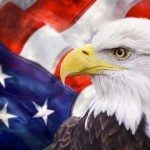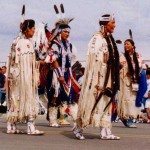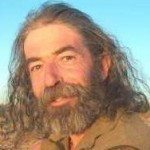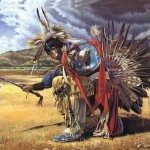Wachiya! Greetings! Bonjour! [Short traditional greeting in Cree]
Permanent Forum On Indigenous Issues
May 13 2002, New York City, New York
I am honoured to have the opportunity to address this historic occasion, the first meeting of the United Nations Permanent Forum on Indigenous Issues. This meeting is the most significant achievement to date of the International Decade of the World’s Indigenous People.
I am grateful for this opportunity. When one is among friends, one must be generous, one must be positive, and one can even be frank.
Therefore, on behalf of the Assembly of First Nations and all Indigenous peoples in Canada, I congratulate the members of the Permanent Members on your appointments to this historic body within the United Nations. It is a great honour to see Indigenous Peoples represented in an international capacity within a UN forum. I call upon this forum, and each of you individually, to safeguard and assure your personal and collective independence, which is the cornerstone of your mandate and of the effectiveness of this key U.N. mechanism.
This historic Permanent Forum provides indigenous peoples with a fundamentally important international arena within the United Nations system to which to bring our issues. It is our hope that this mechanism will enable us to remind and inform the international community that like all peoples, we Indigenous Peoples have fundamental rights that have been suppressed and ignored for far too long.
There is a need for immediate action to approve the Declaration on the Rights of Indigenous Peoples. Most governments have already voiced their support for the existing text, which provides a minimum standard by which to address the rights of Indigenous Peoples. Only a small number of states still refuse to recognize that like all other peoples, Indigenous Peoples have inherent collective rights. It is important that the Permanent Forum now set out in its work with the existing text of the Declaration as its basic guiding standard. Indigenous Peoples, and those who believe in the indivisibility and universality of all human rights, can accept no less.
The Permanent Forum provides an opportunity for Indigenous Peoples and the international community to work together to implement the standards of conduct states should respect in their relations with Indigenous Peoples. The Permanent Forum can recommend the proper actions the United Nations and its agencies must undertake in addressing the broad range of Indigenous Peoples’ issues.
All over the world and almost without exception, we have been dispossessed in our own lands. Vast empires and wealthy nation states have been built upon the exploitation of our lands and resources, while we have been marginalized, pushed aside, and deprived of any say or control over the future of our peoples. The time has come for this unjust process to come to an end, and for the international community to work with us so we can be released from the burdens of colonization and mistreatment so that we can flourish as peoples.
Indigenous peoples must be allowed to determine our future based on the basis of the same principles and rights that the United Nations has recognized for a being fundamental for all peoples of the world.
Like all other peoples, Indigenous peoples have the right to self-determination, without discrimination. By virtue of that right, we have the right to govern ourselves in accordance with our history, our traditions, our cultures and our languages. We have the right to choose the path that we want for ourselves and our children and the generations yet to come. We have the right to freely dispose of or retain and conserve, and benefit from our own natural wealth and resources.
We must be respected and treated as peoples. The international community must take a stand against efforts to limit our rights and subjugate them to corporate, political or other interests. Our rights are inherent rights, that exist by virtue of the fact that we are peoples, and that we are the original peoples of our lands. We cannot accept delegated or granted rights. Our rights should not be subject to the whims of governments which do not have the foresight to recognize the common interest we all share in preserving distinctive components of the human family.
We have very high expectations for this new entity, the Permanent Forum on Indigenous Issues. This body must act as the international manifestation and guardian of our rights. It must be a body to which we can bring our aspirations, our concerns and – yes – our grievances to the immediate attention of the international community.
We must be free to speak our minds in this place, to praise or condemn, as the case may be. And we must have access through this forum to other United Nations bodies in order to ensure that no state can unilaterally treat our citizens in ways that contradict the basic precepts upon which the United Nations was founded and has evolved over the decades – the precepts of cooperation and friendly relations; freedom from oppression and colonization; freedom from discrimination and dispossession; and the right to survive, thrive and develop in peace.
The Permanent Forum must be more than a house of complaints. We must work with it and member states to develop within the United Nations system practical steps and concrete actions that will protect and advance the rights of Indigenous Peoples. Nation States must become accountable for the way they treat the Indigenous Peoples living within their boundaries. Where there is dispossession, mistreatment, aggression or worse, this forum must be in a position to bring the issue to the immediate attention of the international community and work with all concerned to bring these things to an end.
In the long term, this forum must become the means by which we will attain equality as peoples and fair and equitable treatment around the world. All nations must come to the realization that we deserve fair and equitable treatment. The international community can no longer sanction or close its eyes to the unfair treatment of Indigenous Peoples around the world.
It must be acknowledged that Canada’s official policy is that the right of self-determination applies without discrimination to all peoples, including Indigenous peoples. This is a world-leading formal position, for which Canada must be commended and which it must be encouraged to export to other states.
Likewise, it must be acknowledged that Canada has world-leading positions on international development, peacekeeping, refugees, weapons of mass destruction and other issues.
And finally, I acknowledge in this forum, as I have done many times before, that the Prime Minister of Canada, The Right Honourable Jean Chretien, has a special understanding and sensitivity regarding the plight and the rights of indigenous peoples in Canada.
We acknowledge and greatly appreciate Canada’s support in getting the Permanent Forum established.
However, it must also be stated that there are still many serious differences between Indigenous Peoples and Governments in Canada, and that there are gross disparities between the “Third World” situation facing Indigenous peoples in Canada on the one hand and the enviable state of development enjoyed by most other Canadians on the other.
There has been some progress toward formal recognition of our inherent and treaty rights, but there is still a very long way to go before the sustained wrongs of the past are alleviated in the present, and our rights and status are recognized. We still have much to do to achieve our rightful place in a society where we still suffer the worst levels of poverty, landlessness, and social dispossession. Our right to our own means of subsistence and to protect and benefit from our lands and resources are still not implemented in any meaningful, broad and practical sense.
Certainly, Canada’s Constitution recognizes and affirms our inherent and treaty rights. It even refers to us as “Peoples”. But unfortunately, we have had to use the Canadian Courts in every instance to seek and obtain recognition and concrete implementations of our rights. After 20 years, we are still waiting for the Canadian government to respect its own supreme law and move to concretize our rights in concrete ways.
Unfortunately, as recognized in 1999 by the U.N. Human Rights Committee, the government of Canada has chosen not to implement in any serious manner on the recommendations of its own Royal Commission on Aboriginal Peoples. It intends to proceed with a unilateral legislative programme based on the Indian Act instead. The Royal Commission had advised against tinkering with this colonial legislation, and stressed the urgent need to address land and resource rights, and treaty relations.
And sadly, away from the spotlight of international diplomacy, the government of Canada has repeatedly stated to Indigenous peoples and their leaders that it is simply not interested in pursuing or addressing what it calls a “rights agenda” within Canada.
The UN Human Rights Committee and the U.N. Committee on Economic, Social and Cultural Rights have both expressed their concern that Canada is not implementing the Royal Commission’s recommendations. These juridical bodies of the United Nations have recognized that the social and economic marginalization of our peoples is directly connected to the dispossession of our lands and resources. Yet, we are still struggling to get these issues on the domestic agenda. Canadian Federal policies are still based on the extinguishment of our aboriginal rights and the limiting rights of our access to land, resources and self-government.
All nation states and governments must be held accountable for the treatment of the Indigenous Peoples within their boundaries. This is so whether the problems arise from a lack of implementation of legally recognized rights or — as in some extreme cases – they involve the widespread repression and murder of Indigenous Peoples.
In these circumstances, Governments must even, when necessary, be called to account and even isolated within the international community. There are cases which might require some type of immediate multi-lateral response, where gross violations of basic human rights or mass dispossession are taking place. We hope this forum can be the place Indigenous Peoples can come for both immediate and longer-term initiatives within the wider United Nations system.
We live in an age where human rights are the yardstick by which our capacity to live together in an ever-changing world is measured.
We have a huge responsibility to protect, defend and ensure the survival of our peoples. We must be afforded the protection of the full complement of international instruments. We can no longer accept being relegated to second or third class collective status whether in the United Nations system or in our own lands.
We now have a forum to voice our concerns and grievances, and also our hopes and aspirations. Let us use it wisely and well, and ensure that the full weight of the international organization that is the United Nations is dedicated to the survival and equitable development of our peoples. We would be failing our peoples and all of humanity if we expect any less.
Meegwetch. Merci. Thank you.







